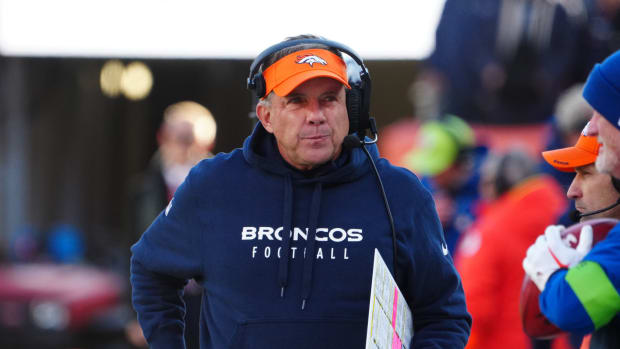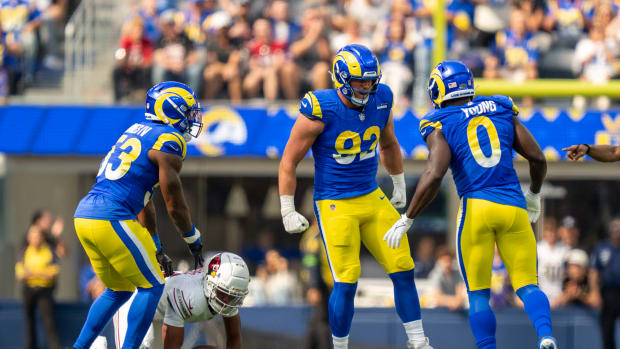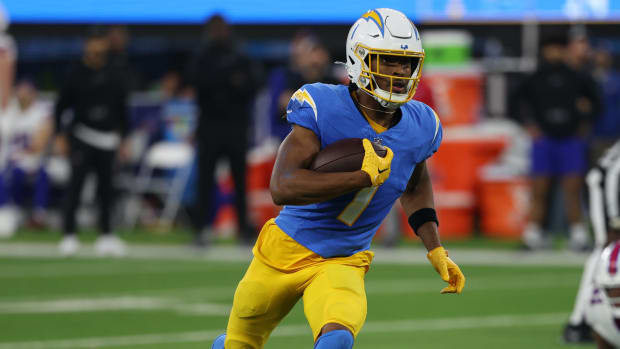SI’s Brett Favre Welfare Scandal Investigation: Key Takeaways
Sports Illustrated published Michael Rosenberg’s in-depth examination of Brett Favre’s role in the Mississippi welfare scandal Thursday, detailing how the former quarterback was a key force behind the scheme. Favre helped redirect federal Temporary Assistance for Needy Families (TANF) money to pay for a new volleyball arena at his alma mater, Southern Mississippi, where his daughter played for the team, as well as to a medical company, Prevacus, in which he had invested $250,000. SI’s goal was to comprehensively tell the story of Favre’s involvement, from the beginning to today.
Here are the key takeaways:
- Favre has portrayed himself as an unknowing and tangential participant in the scheme. But it appears nobody benefited more: Favre managed to direct $8.3 million of welfare funds to his projects, a greater sum so far than anyone else involved in the sprawling scandal. Interviews and an analysis of legal filings and records, which include dozens of text conversations—some of which have not previously been public—paint Favre as a ringleader from start to finish.
- There is a distinct possibility Favre will be indicted. Seven people have either pleaded guilty or now face criminal charges, including Nancy New, the person directly in charge of distributing a large portion of Mississippi’s welfare money and who worked closely with Favre.
- Illegal behavior was so institutionalized among the perpetrators that some showed no fear of getting caught. One of Favre’s partners from Prevacus referred to Phil Bryant, then the governor of Mississippi, as part of his “team,” to which the governor replied, in part: “We will get this done,” according to texts SI obtained. Referring to Prevacus, the governor texted Favre about “our cause.”
- Bryant actively assisted Favre in his quest for funding for Prevacus.
- New Orleans businessperson Joseph Canizaro, a longtime donor to Mississippi Republicans, had built Tradition, a planned community on Mississippi’s Gulf Coast, and he was building a campus for pharmaceutical companies there. After Bryant left office, two of Canizaro’s limited-liability companies, The Village at Tradition and Columbus Communities, would list him as a vice president. He is no longer listed in the reports.
- Prevacus and another VanLandingham company, PresolMD, would ultimately receive around $2.2 million in welfare funds, according to various filings. VanLandingham would refer to it as “grant money.” Prevacus held discussions about locating in Tradition, but a deal never materialized.
- When lawyers for Southern Miss appeared to delay approving $4 million in welfare funds that Favre had persuaded the state’s then welfare director, John Davis, to earmark for the volleyball arena, an additional million dollars was added to the pot, bringing the total grant to $5 million. Why? Referring to Southern Miss’s basketball arena, Reed Green Coliseum, Favre wrote to another person involved: “I hope it’s enough now. Jon said 500k has to go to renovations for reed green and another 500 to maintenances fund.” One lawyer implied in a filing that the state sent the school an extra $1 million to get the school’s lawyers to approve the lease.
- Favre has denied wrongdoing. As the scandal has played out in the press, his central defense—and one that has been previewed by his lawyer—has been that he did not know the state money flowing to his causes was welfare money. No texts have emerged in which he acknowledged, or was directly told, that the money was intended for needy families. But many of Favre's own words and actions make it difficult to understand how he could not have been aware:
- On July 24, 2017, according to court filings, Favre met with a small group that included the then executive director of the Mississippi Department of Human Services, John Davis, Davis’s deputy and another Davis associate, as well as New (who was in charge of distributing welfare funds) and her son. In that meeting, Davis promised $4 million for the Southern Miss volleyball arena, according to the filings.
- When Favre sought money for Prevacus, he welcomed Davis, another Davis associate and the News into his home. Davis, the welfare director, agreed to send Prevacus money.
- Favre was also seeking money to build an indoor football practice facility at Southern Miss, to help woo potential recruits. When he texted Bryant asking for the money, he specifically referred to “you and Nancy” helping him—a clear request for government money.
- As investigators closed in on the scheme, on Feb. 6, at 10:20 a.m., referring to new governor Tate Reeves, Favre wrote to Bryant, seeking an update on additional money he was seeking: “Governor have you spoken to Tate? He said he was gonna get with his team and figure something out.”
Bryant texted back with a link to a Mississippi Center for Public Policy story headlined:
Largest public embezzlement scheme in Mississippi history uncovered
The story said several people related to the scheme had been arrested, including Davis and New. The last line of the 10-paragraph story: “The [News] allegedly used TANF funds to invest in a pair of medical device companies—Prevacus and PreSolMD—based in Florida.”
“This has been the problem,” Bryant wrote. “Not sure what funding will be available in the future.”
Favre told Bryant he was “well aware of it.” But he was still hoping for a “bond bill” to finish paying for the volleyball facility.
- As prosecutors work their way through the participants in the scandal, plea deals have come slowly but steadily, each one a domino leading to a more important one. The most recent indictment came out just weeks ago.
There is no guarantee that Favre will be indicted, but he is one of only a few potential dominos left. Jake VanLandingham is another. The last one, presumably, would be Phil Bryant.




































